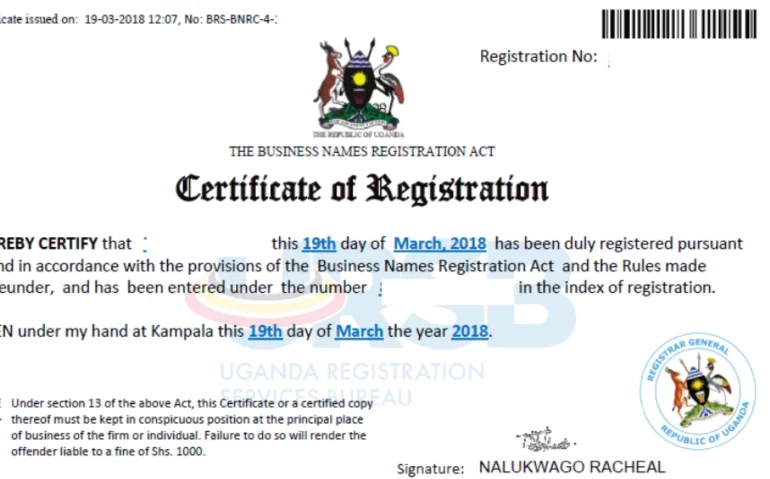Starting a business is an exhilarating journey filled with promise and potential. However, amidst the excitement, it’s crucial not to overlook the critical step of business registration. In Uganda, this process is not only a legal requirement but also a strategic move towards ensuring your enterprise’s legitimacy, protection, and growth. Today, we delve into the importance of business registration, highlighting why every entrepreneur in Uganda should prioritize this essential step.
Introducing Business Name
Firstly, let’s introduce our hypothetical business – [Business Name]. Imagine you’ve meticulously crafted your business idea, envisioned your target market, and are eager to kickstart operations. Whether it’s a small-scale venture or a burgeoning enterprise, [Business Name] represents the embodiment of your entrepreneurial dreams.
Introducing Company
The Significance of Company Registration
Legal Compliance
In Uganda, registering your business with the relevant authorities, such as the Uganda Registration Services Bureau (URSB), is mandatory for all entities operating within its jurisdiction. Compliance with legal regulations ensures that your business operates within the confines of the law, shielding you from potential legal repercussions. By obtaining the necessary licenses and permits, you demonstrate your commitment to ethical business practices, fostering trust among customers, partners, and stakeholders.
Protection of Assets
Business registration offers invaluable protection for your assets and intellectual property. By securing your business name and logo through trademark registration, you safeguard your brand identity from unauthorized use or infringement. Additionally, forming a legal entity, such as a limited liability company (LLC), shields your personal assets from business liabilities, mitigating financial risks and providing peace of mind.
Access to Funding and Opportunities
Registered businesses are better positioned to access financing opportunities from banks, investors, and government initiatives. Financial institutions often require proof of business registration when evaluating loan applications, viewing it as a testament to your commitment and credibility. Moreover, registration opens doors to government contracts, grants, and support programs aimed at fostering entrepreneurship and economic development.
Facilitation of Business Transactions
Formal registration enhances your business’s credibility and facilitates smoother transactions with suppliers, clients, and regulatory bodies. Registered businesses are perceived as more reliable and trustworthy partners, reducing the barriers to collaboration and negotiation. Furthermore, registration enables you to open a business bank account, separate from your personal finances, streamlining financial management and fostering transparency.
Long-Term Growth and Sustainability
Beyond immediate regulatory compliance, business registration sets the stage for long-term growth and sustainability. It lays a solid foundation for scalability, enabling you to expand operations, enter new markets, and pursue strategic partnerships with confidence. Moreover, registered businesses are more attractive to potential investors and buyers, increasing the value and marketability of your enterprise.
Other Terms
A Partnership
A Partnership is different from a company because while a company is separate from its owners and can hold property and sue or be sued in its name, a partnership is not a legal entity of its own; partnership property is held by the partners exclusively for purposes of the business. Also, when a partner dies, the partnership is dissolved (unless the Partners agreed otherwise) which is not the case with a company.
In General Partnership, however, all Partners are fully liable for the partnership’s debts.
To register a partnership the Business Name should be registered first.
To register any type of partnership, one needs to file a Deed of Partnership.
Lorem ipsum dolor sit amet, consectetur adipiscing elit. Ut elit tellus, luctus nec ullamcorper mattis, pulvinar dapibus leo.


















